Iran’s Dilapidated Aviation Industry Declining In Quality, Quantity - MP
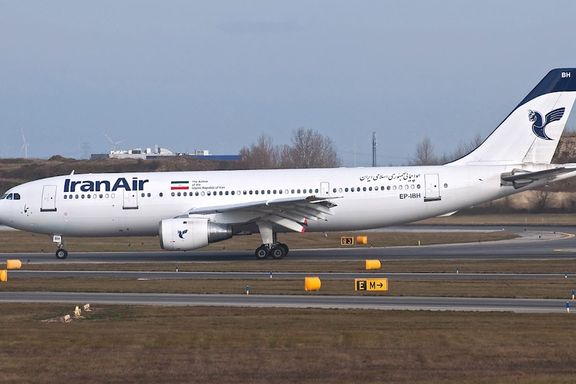
An Iranian lawmaker says due to sanctions on the country the quantity and quality of Iran's aviation industry is decreasing day by day.

An Iranian lawmaker says due to sanctions on the country the quantity and quality of Iran's aviation industry is decreasing day by day.
According to Alireza Pakfetrat, the representative of Shiraz in the parliament, the number of passenger planes that remain operational have decreased as well as the number of flights in the country.
He added that the quality and technical upkeep of the aircraft have also suffered significantly, causing flight delays.
Criticizing Roads and Urban Development Ministry, he said it is spending most of its time and budget on housing projects and forgets that the aviation industry is also part of their responsibilities.
He also proposed splitting the ministry in two: one for urban development and one for road and transportation, which was the case in the past.
According to Alireza Barkhor, the deputy chairman of the Association of Iranian Airlines, more than 50 percent of Iran’s passenger planes are grounded due to lack of spare parts, particularly engines.
Iran has suffered from shortages of civilian airliners since the 1990s and used a variety of ways to lease older planes or buy spare parts through intermediaries, but the technical state of its fleet has been deteriorating.
The 2015 nuclear agreement (JCPOA) suspended sanctions on purchases of Western aircraft and Iran began talks to buy new planes from Boeing and Airbus. A few airbus planes were delivered but the Trump administration never approved sale of US planes until Washington withdrew from the JCPOA in May 2018 and reimposed sanctions.

In the latest case of Congressional opposition to reviving the 2015 Iran nuclear deal, a group of senators has introduced a bill making sanctions “permanent.”
The Solidify Iran Sanctions Act 2022 – brought forward by senators Tim Scott (R-SC), Maggie Hassan (D-NH), Bill Hagerty (R-TN), and Jacky Rosen (D-NV) – would abolish the ‘sunset’ clauses in the 1996 Iran Sanctions Act (ISA) set to expire 2026.
The ISA, originally the Iran and Libya Sanctions Act, first aimed at thwarting Iran’s attempts to develop its energy sector but was most significant in developing ‘third party’ sanctions. The ISA laid out ‘triggers’ that would allow the president to take punitive action against third parties dealing with Iran.
The ‘triggers,’ amended and extended by later laws, included annual investment over $20 million, constructing pipelines, specified weapons sales, sales of gasoline to Iran, transporting or buying Iranian crude, and dealing with named Iranian bodies including the National Iranian Oil Company and the Islamic Revolutionary Guards Corps (IRGC).
Most ISA provisions were suspended when the US in 2015 agreed with Iran and five other world powers the Iran nuclear deal, the Joint Comprehensive Plan of Action (JCPOA), under which Tehran accepted limitations on its nuclear program linked to intrusive inspections in return for eased international sanctions.
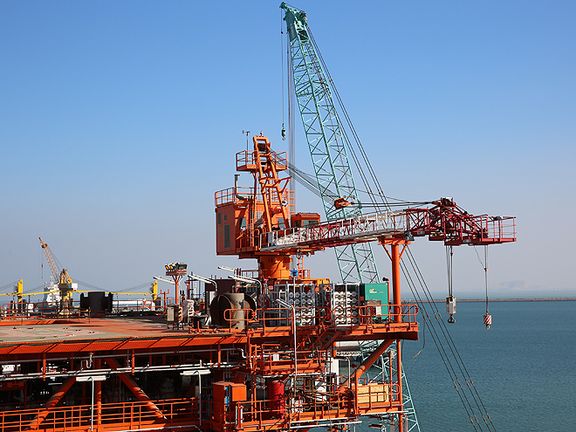
But these provisions were reapplied when President Donald Trump in 2018 withdrew the US from the JCPOA and imposed ‘maximum pressure’ sanctions.In October 2018, the Trump administration withdrew from the 1955 Iran-US Friendship Treaty after the International Court of Justice ruled aspects of ‘maximum pressure’ violated the treaty, and in 2019 the US threatened to punish any European companies trading with Iran through Instex, the special purpose vehicle set up to sidestep US sanctions.
The new US legislation has been introduced as 16-month talks with Iran and world powers to revive the JCPOA are currently focused on Iran’s response to a European Union text circulated August 8. While the talks have been treated largely as confidential by all parties, some of the trickiest issues reportedly concern the extent and application of US sanctions.
Sanctions guarantees
One of the major stumbling blocks remaining to JCPOA renewal is reportedly Iran’s demands for ‘guarantees’ over the US implementing the agreement should be it be revived. Tehran is seeking cushions, both over sanctions and in its nuclear program, against the US once again leaving the 2015 agreement.
The practical effect of the proposed legislation would be not so much on US policy, where implementation rests primarily with the president, but on keeping the sanctions infrastructure indefinitely in place and therefore readily revived.
“The United States, Israel, and our Arab partners remain concerned about the looming threat that a nuclear Iran poses to the stability of the region,” said Scott. “US sanctions are a necessary deterrent for this dangerous and unstable regime, which is why my bill will make the cornerstone of sanctions on Iran permanent.” The legislation is supported by lobbyists American Israeli Public Affairs Committee (AIPAC).
Iran's oil and natural gas production have fallen behind in investments and as a result they are unable to extract higher amounts of energy despite the country's vast reserves. Iran has failed to appropriate sufficient funds and has lacked Western technology for boosting production as oil and gas fields produce less over time.
Iran's oil minister Javad Owji has said that the country needs $160 billion dollars for immediate investments while it has lost hundreds of billions in the past 12 years because of international and US sanctions.
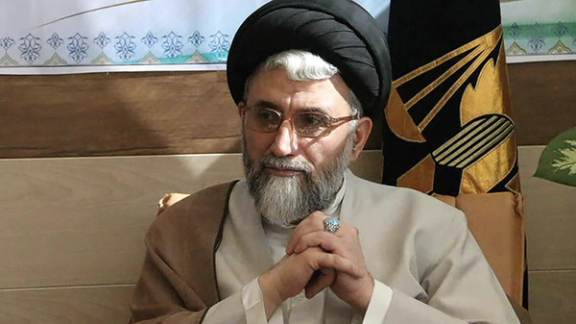
Iran’s Intelligence Minister Esmail Khatib has warned critics of government against writing statements and open letters to criticize the current situation in the country.
Khatib made the remarks on Thursday as the Islamic Republic’s security apparatus is increasing pressure on the signatories of a statement against Iran’s crackdown on popular protests, demanding they rescind their signatures.
Informed sources told Iran International Wednesday, August 17, that the Intelligence Ministry as well as the security division of the country’s Ministry of Culture and Islamic Guidance have threatened more than 100 film industry figures to withdraw their signatures from a May statement titled “Lay down the gun”.
Khatib blamed the United Sates for internal opposition, saying the US was forced to leave the region following humiliation and defeat and their conspiracies were thwarted, and now “the enemy’s hopes in some domestic seditionists and statement writers are doomed to failure.”
The statement by filmmakers had called on military and security forces who “have become tools for cracking down on the people,” not to suppress protesters during popular demonstrations in May.
According to reports, under the threat of security forces, about 15 people have so far withdrawn their signatures from the statement.
Iran International’s sources also said that 10 documentary makers have been informed that they are banned from leaving the country and that a list of artists who are banned from working will be announced next week.
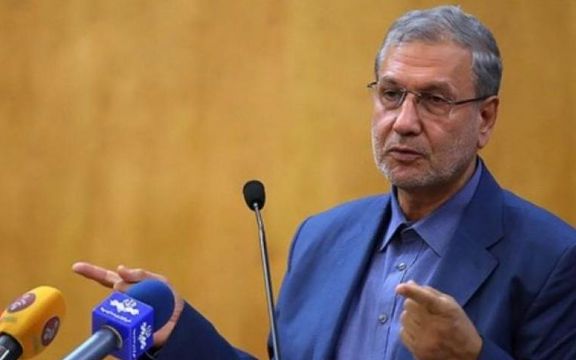
Iran's conservatives appear to have split into two groups, one welcoming a new nuclear deal and the other arguing it cannot be a magic wand for Iran's economy.
Conservative Foreign Policy Expert Jalal Khoshchehreh said in an interview on Thursday that hardline conservatives in Iran are preparing to blame whatever falls short of their demsands on Iran's previous government if the new deal is different from what President Hassan Rouhani's government had achieved in its negotiations with the West between April and June 2021.
Khoshchehreh explained hardline, or in his word, radical conservatives are pretty much sure that a deal is being made with the United States. On Wednesday, lawmakers at the Iranian parliament said that they had been briefed by top security, nuclear and foreign policy officials who told them that major hurdles on the way of an agreement have been removed and the United is weighing Iran's final response.
The analyst cautioned however that radical conservatives are getting ahead of themselves and setting the stage for the post-agreement developments, a situation in which both Tehran and Washington have made compromises.
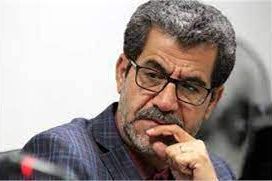
Meanwhile, the former head of the Iranian parliament's Foreign Policy and National Security Committee Heshmatollah Falahatpisheh described the differences among various Iranian conservatives over a new deal as a sham fight.
Referring to tough positions taken by some hardliner conservatives such as the editor of hardline daily Kayhan, Hossein Shariatmadari, who said on Thursday there no US guarantee is trustworthy, or conservative politician Mansour Haghighatpour, who has spoken about disciplining the United States, Falahatpisheh said that "Obstructionism has already started against a new deal. Had an agreement been reached earlier, it would have been working by now. Nonetheless, everyone in Iran and America should welcome any move toward reducing tensions no matter when this move starts."
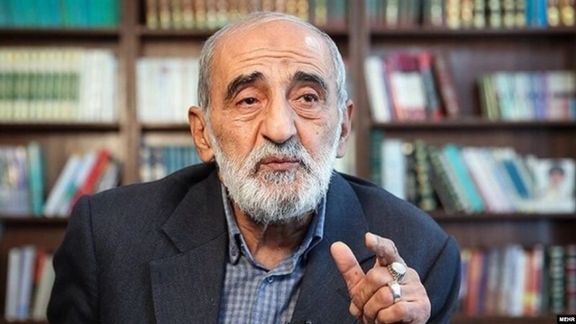
He said that "Iran's response indicates Tehran's acceptance of [EU’s Josep] Borrell's proposal. Tehran only needs to make sure that Washington's promises about [lifting] the sanctions are spelled out in the text of the agreement."
In another development, former Iranian government spokesman Ali Rabiei said in a commentary published by reformist daily Etemad that "It is wrong to believe signing an agreement will improve everything in Iran. This is a trap we should not fall in. An agreement simply removes the barrier on the way of moving ahead. But going forward needs prudent policymaking and efficiency."
He acknowledged that everybody in Iran seems to be happy about reaching an agreement as they think the country's has moved in the right direction. Rabiei added that as a result, the former opponents and supporters of a deal have reached a common understanding. But still, they will have two different approaches in the post-agreement situation. One group will limit the outcome to selling more oil and getting more money to survive and improve the current situation. However, the right approach is using the agreement as a first step to end Iran’s isolation from the world economy and to reconstruct and expand the country's infrastructure by investing in development.
The former official then opined that "the confrontation between these two approaches is the first challenge Iran will face in the post-agreement situation. Meanwhile, officials should prepare the country's banking system for the new reality…pave the way for foreign investment and strengthen the private sector."
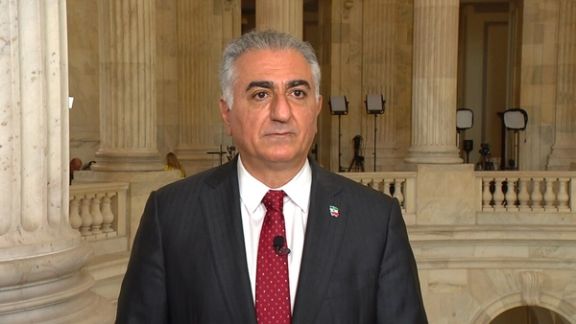
Iran's exiled Prince Reza Pahlavi says the way Western powers interact with the Islamic Republic has emboldened it to continue its repressive measures with greater immunity.
In a Wall Street Journal opinion piece, Pahlavi noted that the regime of Iran is the main responsible party for the attack on writer Salman Rushdie in New York last week, adding that Iran’s Ayatollah Ruhollah Khomeini invoked God to “call on all valiant Muslims wherever they may be in the world to kill [Mr. Rushdie] without delay.”
“While the Islamist regime in my country and the assailant it appears to have inspired bear responsibility for this attack, they were enabled by Western policy makers,” he wrote.
In the late 1980s and early 1990s, the United Kingdom and Germany cut relations with Iran, sending a strong message, Pahlavi said.
“This forced the Islamic Republic to keep a low profile. British and German citizens were largely safe from its machinations. The strong response from the West didn’t change Tehran’s destructive desires, but it did contain them,” he said, highlighting that now it appears “Western powers on both sides of the Atlantic have forgotten the lessons that kept their citizens secure as well as the dissidents to whom they offered a haven.”
He said although the Islamic Republic has not changed its revolutionary principle, it is now “accepted at glitzy panels at international forums and attend headline-grabbing negotiations at Europe’s chicest hotels.” That acceptance has afforded the regime unprecedented and undeserved moral equivalency with the West and has fostered confidence among Tehran’s radical followers who see the regime as a source of revolutionary inspiration to radical action, Pahlavi said.
The negotiations with Washington over a new nuclear deal in Vienna have shown “Khamenei and his criminal cabal” that they can effectively get away with murder, he said.
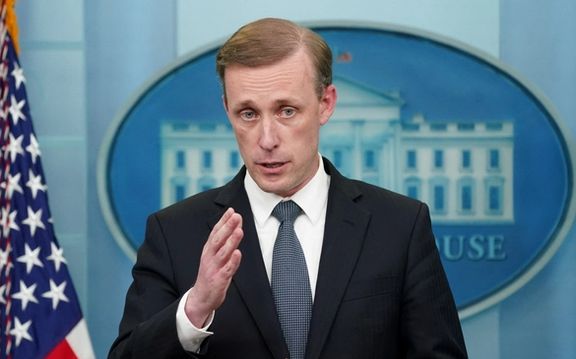
The US National Security Council was quick to reject suggestions by Senate Republicans that the administration is ready to make major concessions to Iran.
Senate Foreign Relations Committee ranking Republic, Sen. Jim Risch tweeted on Thursday that the “The Iranian regime seeks JCPOA guarantees from the Biden Administration that it will end the IAEA probe, protect Western companies operating in Iran, and allow Iran to accelerate nuclear weapons work if a future administration exits the deal.”
The key phrase here is “The Iranian regime seeks,” which is different from a claim that the Biden Administration has agreed to make the concessions. But the National Security Council was quick to respond to the tweet within the hour.
“Nothing here is true. We would never accept such terms. We also would not have left a deal that was working only to see Iran massively accelerate its nuclear program.”
Before Senator Risch’s tweet however, information emerged from Iran that regime hardliners were circulating a list of what they called “US concessions”, including lifting of some non-nuclear sanctions, which the Biden Administration has insisted it would not do.
The claim by hardliners in Tehran, however, was different from Sen. Risch’s points and the National Security Council tweet did not specifically address these.
One crucial point mentioned in Tehran was allegedly the lifting of sanctions imposed, for non-nuclear reasons, on a large conglomerate controlled by Supreme Leader Ali Khamenei.
Iran International asked the State Department about the Iranian claims, but the press office referred our reporter Samira Gharaei to the National Security Council tweet, which in fact had only addressed Sen. Risch’s claims.
It would be normal perhaps for the State Department not to respond to unofficial claims by politicians who do not formally represent a government.
The government-controlled media in Iran also chose not to report the claims by the hardliners.
Negotiations to restore the 2015 nuclear deal, JCPOA, have reached a crucial stage where Iran is awaiting the US response to a text it sent to the European Union on August 15. EU sources said Thursday that the US response may come “at any moment”, perhaps on Friday.
The only significant news on the nuclear talks in the Iranian press on Friday was a report on remarks by Parliament Speaker Mohammad Bagher Ghalibaf (Qalibaf) at a ceremony Thursday evening.
The Speaker accused the US of bullying Iran and said, “If we don’t stand up to that country, they will not back down. Therefore, we should become more powerful.”
Referring to a law passed by parliament in December 2020 that mandated more uranium enrichment and reduction in monitoring access for the International Atomic Energy Agency (IAEA), Ghalibaf said “nothing happened” when Iran disconnected the IAEA cameras in its nuclear installations… [on the contrary] “America again returned to the negotiating table.”